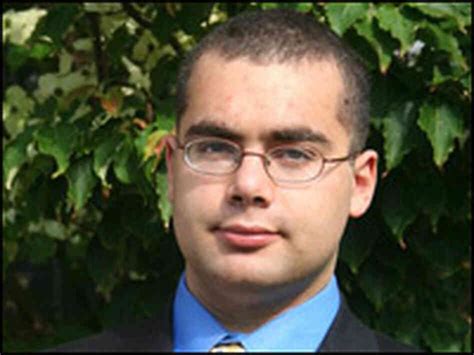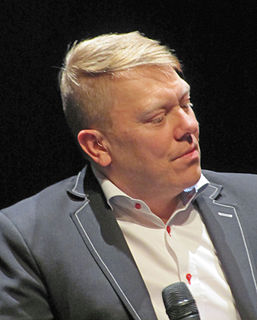A Quote by Temple Grandin
By looking at autistic kids, you can't tell when you're working with them who you're going to pull out, who is going to become verbal and who's not. And there seem to be certain kids who, as they learn more and more, they get less autistic acting, and they learn social skills enough so that they can turn out socially normal.
Related Quotes
My brother is severely autistic, so when I was a kid I spent a lot of time as a teenager in camps and programs for autistic kids. When I went to McGill as an undergraduate, I figured I'd be a therapist working with these kids. The truth is, and I knew this even back then, I'm just not good at this. I'm too empathic to do this sort of thing.
There are three basic ways [to use a dog to work with autistic children], one is just to be companion person and I'm thinking now more of autistic kids not somebody in a wheelchair or the dog belongs to a therapist and then it's used as an ice breaker to get the kid talking and get the kid interacting.
Animals are like autistic savants. In fact, I'd go so far as to say that animals might actually be autistic savants. Animals have special talents normal people don't, the same way autistic people have special talents normal people don't; and at least some animals have special forms of genius normal people don't, the same way some autistic savants have special forms of genius. I think most of the time animal genius probably happens for the same reason autistic genius does: a difference in the brain autistic people share with animals.
In America we've spent over a billion dollars on autism research. What have we got for that? We've not seen anything that's appreciably impacted the quality of life of autistic people, regardless of their place on the spectrum. Quite frankly, we've spent $1bn figuring out how to make mice autistic and we'll spend another $1bn figuring out how to make them not autistic. And that's not what the average person wakes up in the morning aspiring to. They think: am I going to be able to find a job, to communicate, to live independently, either on my own or with support? Those are the real priorities.
Looking ahead, future generations may learn their social skills from robots in the first place. The cute yellow Keepon robot from Carnegie Mellon University has shown the ability to facilitate social interactions with autistic children. Morphy at the University of Washington happily teaches gestures to children by demonstration.
Research demonstrates that autistic traits are distributed into the non-autistic population; some people have more of them, some have fewer. History suggests that many individuals whom we would today diagnose as autistic - some severely so - contributed profoundly to our art, our math, our science, and our literature.
One thing that I notice that is changing, you don't see kids on Sunday. Most of them are home. The kids are having much more virtual childhoods instead of childhoods. They don't play ball or hang out with the wrong people or get in fistfights, all the things that once made childhood. I don't know how it's going to turn out.
When I take kids into the woods, I tell them, "What we're going to do today is going to be incredibly dangerous." And you just see 20 smiles go up. "But, we're also going to learn to look after each other, who to work together and who to understand and manage that risk." That's what it's about, you don't empower kids if you don't expose them to risk.
Kids who are least impressive in my class are the ones who only listen to one kind of music. They only listen to country or only to rap or to gospel or anything. It's a sad thing. I try really hard to get them to go out and listen to things. It's amazing what you learn. ... I'm still trying to learn. It's not like I'm going to be a calypso singer. That's not going to happen, but I'm sure there's something in that, that I can learn from and apply to my own work.
I think hip-hop has changed. When I first came out, hip-hop was more of a kind of way to learn about new places, new things. What are kids doing on the East coast, what are kids doing here. Then it left that and is like a party mode. I think it's going back to people wanting to get messages and wanting to learn things from the music.































